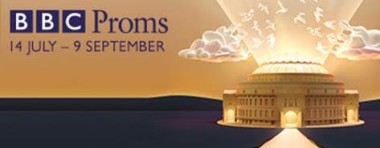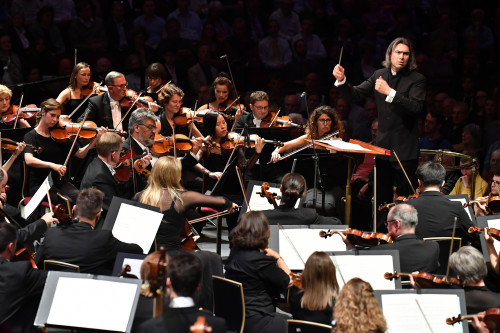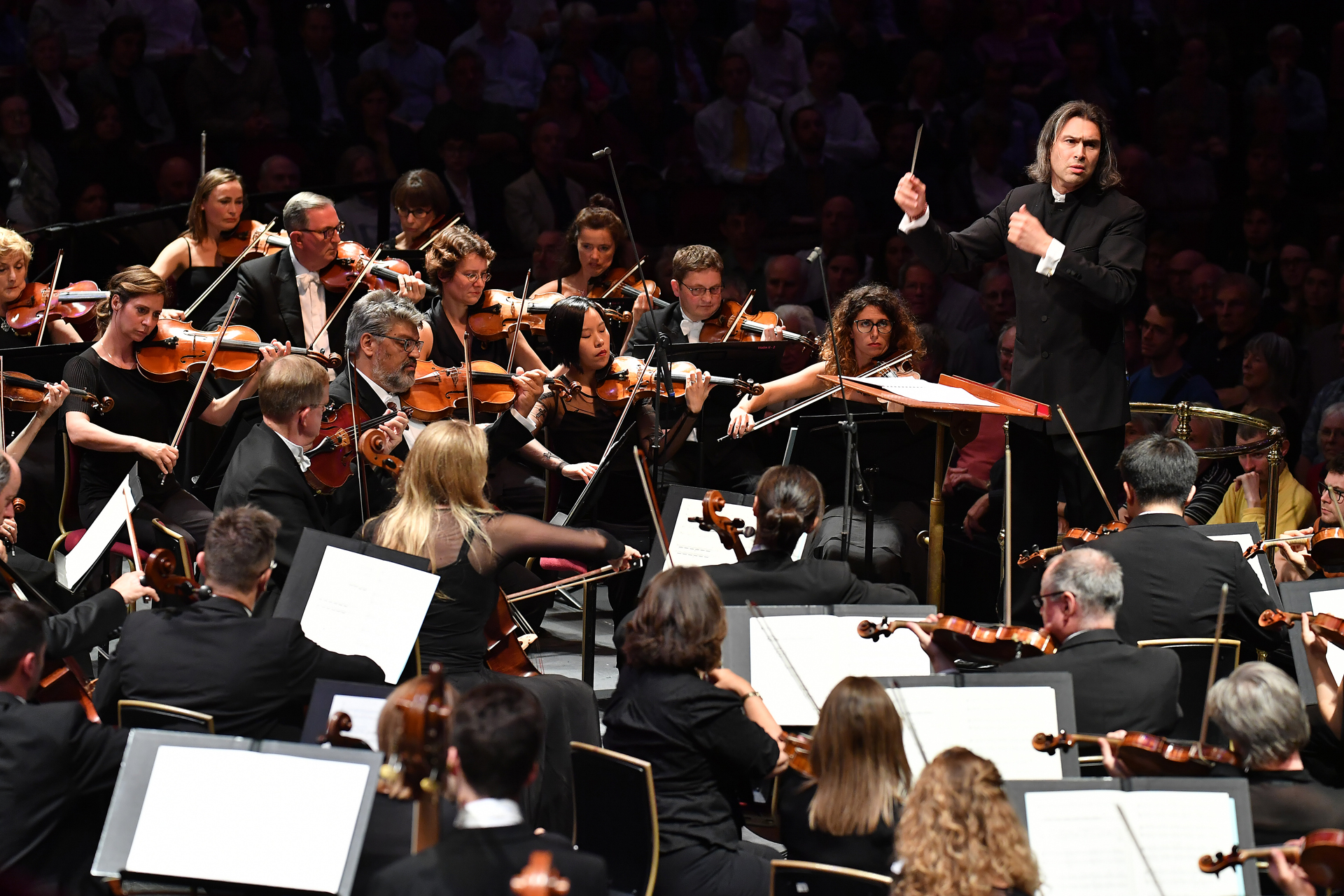
 United Kingdom 2017 BBC PROMS 71 – Stravinsky, Prokofiev, Britten, Shostakovich: Alina Ibragimova (violin); London Philharmonic Orchestra / Vladimir Jurowski (conductor). Royal Albert Hall, London, 6.9.2017. (CC)
United Kingdom 2017 BBC PROMS 71 – Stravinsky, Prokofiev, Britten, Shostakovich: Alina Ibragimova (violin); London Philharmonic Orchestra / Vladimir Jurowski (conductor). Royal Albert Hall, London, 6.9.2017. (CC)

Stravinsky – Funeral Song, Op.5 (first Proms performance)
Trad (arr. Stravinsky) – Song of the Volga Boatmen (first Proms performance)
Prokofiev – Violin Concerto No.1 in D
Britten – Russian Funeral (first Proms performance)
Shostakovich – Symphony No.11 in G minor, “The Year 1905”
Vladimir Jurowski’s concert programming has always been stimulating, and nowhere more so than in this Russian-themed Prom. It was an inspired stroke to include Britten’s 1936 piece Russian Funeral, which quotes a Russian funeral song (“You fell as heroes”) that reappears in Shostakovich’s Eleventh Symphony.
Talking of funerals, it was good to see the recently resurfaced Stravinsky Op.5, Funeral Song, receiving its first Proms performance. The score and parts disappeared after its premiere in January 1909 and were only found in 2015(!). The second performance was in St Petersburg a mere nine months ago; in February, Jurowski conducted the Moscow premiere. Lasting around twelve minutes, the score prefigures Firebird in its scoring (tremolando in the strings coupled with high woodwind gestures, for example). Always imaginative in its orchestration, Funeral Song is a welcome addition to the Stravinsky catalogue, particularly in such a warm and yet focused performance as this one.
It was a nice touch to follow it with Stravinsky’s 1917 arrangement of the famous Song of the Volga Boatmen (like Stravinsky’s Op.5, receiving its first outing at the Kensington Summerfest). Scored for symphonic wind with timpani, bass drum and tam-tam, it made a powerful impression over its brief, two-minute span. Here and throughout, Jurowski’s small but always meaningful gestures seemed to inspire his musicians to full concentration – a musician’s musician through and through.
Prokofiev nestled well with Stravinsky, bringing his own characteristic language in his First Violin Concerto. Alina Ibragimova was a most musical and involving soloist, although at times one wondered if she could have projected more as the music opened out. She was at her finest in the interior passages, such as the whispered opening; she did find rawness to her tone at other times, and her stopping was wonderful. The demonic Scherzo showed Ibragimova’s sheer virtuosity, while the finale’s opening theme was winningly presented. The orchestral contribution was perfectly scaled for the soloist by Jurowski. Good to have an encore: the first movement of Ysaÿe’s Fifth Sonata for Solo Violin (Ibragimova has recently recorded all six of Ysaÿe’s solo sonatas for Hyperion).
Post-interval, a bedfellow for the Shostakovich: Britten’s seven-minute Russian Funeral, Britten’s only work for brass band. A central scherzo-like section is framed by the unmistakable tread of a funeral march. The brass played this standing up, impressively delivering a piece that, while one has to admit it is s not top-drawer Britten, nevertheless fitted well in the evening’s trajectory.
And that trajectory led to Shostakovich’s wonderful Eleventh Symphony. It is surely impossible to find a performance that would erase memories of Rostropovich with the LSO at the Barbican – a concert I was privileged to attend and which was captured on the LSO Live label (review) – but Jurowski nevertheless provided a fine account. The piece features Revolutionary songs in its musical materials; it also has been accused of being rather filmic in its expression. Jurowski embraced the what I prefer to call the visceral, evocative scoring and gestures. The first movement, “Palace Square”, had a frozen demeanour but was sadly low on atmosphere. No doubting the excellence of the instrumental contributions from the pair of flutes or the two trumpets, however. A pity too that some of the definition of the low string rumblings at the opening of the second movement, “The Ninth of January” was lost (one can have atmosphere and definition at the same time, after all); yet the viola section’s statement of the theme in the third movement, also heard in the Britten, was finely judged, as were the long passages of pizzicato from the double-basses.
One has to admire the bells in the finale, superbly placed and judged; the piercing first trumpet, too, made real impact. The cor anglais solo, played by Sue Böhling, was well delivered if not of soul-wrenching impact. So, a good performance of a piece that links to this year’s Proms theme of the Russian Revolution, rounding off a superbly programmed concert.
Colin Clarke
For more about BBC Proms click here.
